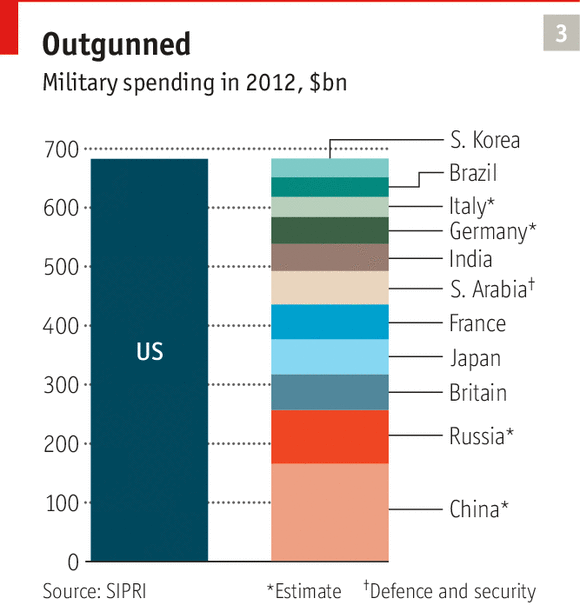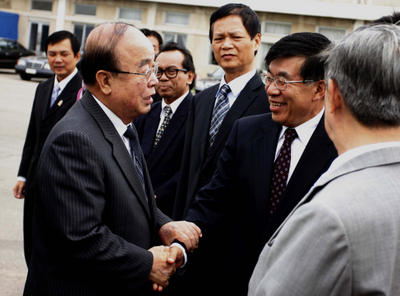I am afraid the regime is going to continue to look for human bargaining chips to try to force political and economic concessions.
Excerpt:
“I have been guilty of a long list of indelible crimes against DPRK government and Korean people as advisor of the Kuwol Unit of the UN Korea 6th Partisan Regiment part of the Intelligence Bureau of the Far East Command,” the apology said.
For those interested partisan operations in the Korean I have a provided a short excerpt below the article. Many of us who have served in Korea know Commander Park well and have heard his speech and drank soju with him every September as he points out his home across the Han river estuary. At the link below is a declassified report on UN Partisan operations from 1951-1954.
November 30, 2013
North Korea Accuses Detained U.S. Veteran of War Crimes
By JANE PERLEZ
http://www.nytimes.com/2013/
BEIJING — North Korea accused an elderly American veteran of war crimes, and released a video Saturday of him confessing to “hostile acts” during the Korean War and while he was a tourist there last month.
The veteran, Merrill Newman, 85, of Palo Alto, Calif., who has been held since Oct. 26, appeared on the video dressed in a blue American-style shirt and wearing rimless spectacles as he read excerpts from the apology from several sheets of white paper.
The state-run Korean Central News Agency released a full text of the apology, in which he asked for forgiveness. The agency said in a separate statement that Mr. Newman was involved in the killing of innocent civilians during the Korean War.
Mr. Newman, a retired technology executive and a world traveler, went to North Korea on a trip organized by a licensed tour group to fulfill a longtime desire to see the country where he had served as an infantry officer, his family said.
There was no indication from North Korea what the next steps would be. The State Department had no immediate comment.
In the written apology, which was dated Nov. 9, Mr. Newman is quoted saying: “If I go back to U.S.A., I will tell the true features of the DPRK and the life the Korean people are leading.” The DPRK stands for the Democratic People’s Republic of Korea.
The reference of a possible return to the United States could be interpreted as a sign that the North Koreans were considering sending Mr. Newman home, according to a person familiar with the case and North Korea. The person declined to be identified because of the sensitivities of the matter.
The apology, written in disjointed English, contained details of what Mr. Newman supposedly did during his tour of duty in the Korean War.
“I have been guilty of a long list of indelible crimes against DPRK government and Korean people as advisor of the Kuwol Unit of the UN Korea 6th Partisan Regiment part of the Intelligence Bureau of the Far East Command,” the apology said.
The written apology signed by Mr. Newman says he asked his guide to look for surviving soldiers from an action that he participated in against the Korean Peoples Army, and that he had brought into North Korea an “e-book criticizing the Socialist DPRK.”
Mr. Newman was pulled off a plane Oct. 26 as it was preparing to leave North Korea for Beijing. Something appeared to have gone awry on the last full day of Mr. Newman’s tour when he was asked to talk to one of his tour guides in the presence of another North Korean and without his traveling companion, a fellow retiree from California, said his son, Jeff Newman.
The two retirees traveled with two Korean guides on a trip organized by the London-based Juche Travel Services, an outfit that says it appeals to “smart, independent” travelers.
Mr. Newman told his traveling companion, Bob Hamrdla, that the conversation had not gone well and he had a bad feeling about it, the son said.
The State Department’s special envoy for North Korea, Glyn T. Davies, said in Tokyo last week that the United States was considering strengthening economic sanctions against Pyongyang, a threat that was partly in response to the situation involving Mr. Newman.
After Mr. Newman’s detention, the State Department stiffened its travel advisory, warning Americans they could be subject to arbitrary arrest if they went to North Korea as tourists.
An estimated 9,000 Western and about 30,000 Chinese tourists went last year to North Korea, a destination that attracts people curious about life under the nuclear-armed, absolutist authoritarian regime.
American veterans of the Korean War have previously visited North Korea on guided tours - similar to the one Mr. Newman was on – and have not run into trouble, American officials said.
(Continued at the link below)
8240th Army Unit (AU) Association
United Nations Partisan Forces Korea (UNPFK)
The 8240th AU Association is a group of Korean veterans who fought as partisans under the control of the United Nations Command during the Korean War. We will not rewrite their history here, but I've posted this info to help understand why this Chapter is bonded to them and why we support them.
At the onset of the Korean War, which began with the North Korean invasion of the South in June 1950, the US Army had no "Special Forces" as we do today that were trained to conduct unconventional or guerilla warfare behind enemy lines, but the need quickly arose. The US Army learned it had "large anti-communist partisan forces" that had escaped North Korea and had set up ad-hoc bases on islands off the coast and were conducting limited operations into their homelands in North Korea, so the Army quickly assigned US advisors to support, equip, and train these partisans. These US advisors included Army Rangers, personnel who had guerrilla warfare experience from WWII, and personnel who could think "outside the box" and operate in austere conditions with limited support.
The Partisan forces grew in strength to approximately 38,000 by the end of the war and had a significant impact on the outcome [It is estimated that it took approximately two divisions of Chinese Communist and North Korean forces to provide rear-area security against partisan operations]. The number of advisors grew as well to support and advise the growing number of partisans. Special Forces as we know it today began in mid-1952, and in early 1953, approximately 90 officers and men from the second graduating class of the new SF school arrived to support these partisans operations. Herein lies our link to the 8240th AU, and that kinship continues to this day.
Some interesting points:
- Most of these partisans were not soldiers - they were local government officials, school teachers, policemen, skilled laborers, etc.
- Most were from North Korea but did not support communism, so they escaped North Korea either before or after the invasion. When communist rule sweeps through an area that was considered dissident, it is not very kind to the populace. A saddening story told to me by a veteran: At a young age he hid beneath his Grandmother's dress as the North Korean Communists lined up his Father (a policeman), his Mother, and all his siblings, and executed them with gunshots to the back. He lay under the body of his grandmother and later escaped to an island, and at a young age was doing whatever he could to help the partisan effort... carrying water, cooking, etc. Several of the partisan supporters were female as well.
- Many partisans did not make it back from their high-risk missions behind enemy lines - they had one of the highest casualty rates of any unit during the war. Some patrols were simply never heard of again after insertion.
- There are only about 2,500 known survivors remaining today, with another estimated 500 survivors that have chosen to remain anonymous. And because they fought as "partisans" under UN/US control, and not as South Korean soldiers, they were not recognized by their own government as fully-fledged veterans. They only received about 1/3 of the benefits as other Korean veterans did. The US Congress recognized them this decade thanks to the hard work of some caring US veterans, and the South Korean government finally recognized them in 2008 with full veteran benefits, of which a percentage can be passed onto their children.
Mr. Park, the President of the 8240th AU Association and former Commander of a partisan unit during the war, gives his speech each year at the 8240th Memorial on Gyodong Island in South Korea. He points to a house on the North Korean shore just across the straits... "That is my house. I have not been there since the war. I hope my family still lives there and is safe, but I suspect not."

 Wounded Green Berets are evacuated by helicopter from a camp in Plei Me, South Vietnam, in November 1965.
Wounded Green Berets are evacuated by helicopter from a camp in Plei Me, South Vietnam, in November 1965.






